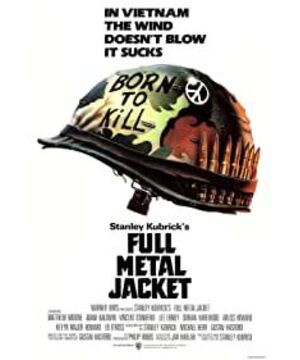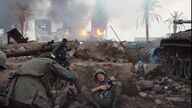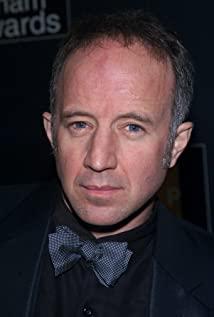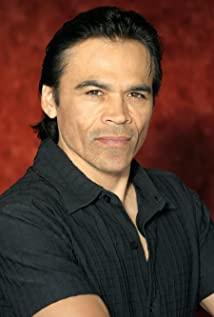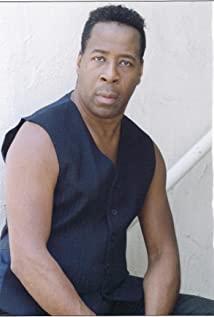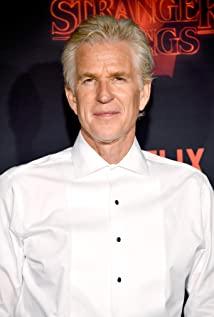The Vietnam War was the longest and largest war in the world since the end of World War II. This war not only rewritten the pattern of world powers, but also had a major impact on cultural ideas. War is no longer a simple way of defending the country. Synonymous, the reflection on human dignity and the value of life began to override "victory", "freedom" and "justice". The gorgeous coat of war was torn to pieces, ideological disputes were trampled on the ground, and life shouted Want to climb to the top of the world.
At the end of the Vietnam War, anti-war ideas swept the world like a tide, and movies with this theme were also put on the big screen one after another, including "Vietnam Deer Hunter" directed by Mike Cimino and Francis Cole "Apocalypse Now" directed by Paula and "Killing Fields" directed by Oliver Stone are outstanding representatives of such movies. In contrast, "Full Metal Case" is much less famous and has not won important awards. However, this film is like Kubrick himself, there is always "time" behind to support silently, after all. No matter how large the scene, no matter how realistic the picture is, it will fade due to technological progress. Only human struggles and contradictions are eternal, and this is what Kubrick and his works value.
The original text of "Full Metal Jacket" is Full Metal Jacket, which refers to a rifle bullet that is completely covered with copper. The meaning in the film is a complete killing machine. The title of the film points out Kubrick's attitude towards Vietnam War and Vietnam War soldiers: the essence of Vietnam War is killing, and the essence of soldiers is an inhuman machine. "Full Metal Shell" adopts a third-person perspective in the narrative method, and develops the content from the perspective of a soldier nicknamed "Joker". After receiving training, "Joker" entered the news group when he went to the battlefield in Vietnam. Therefore, he entered and exited the Vietnam War battlefield as a war reporter and soldier. When the "Joker" shuttled back and forth in the film, the voice-over of the "Joker" was interspersed from time to time. Kubrick obviously tried to create an objective atmosphere of observation. In fact, Kubrick’s lens movement in the film, including the zooming of the lens, and the idea of taking turns shooting each soldier at an elevation angle, are all aimed at creating a documentary objective effect.
"Full Metal Shell" does not pull the story directly to the battlefield like most war movies, but depicts the inner transformation process of soldiers from the day they enlisted in the army. The content of "Full Metal Shell" is divided into two parts. The first part is about the training process of a platoon of Marine Corps recruits in the United States, and the second part is about the soldiers' encounters on the battlefield in Vietnam. In the first part, the scene starts from the soldiers shave their heads and joins the army until they complete their training and formally become a soldier. The main focus of the story lies in the rigorous training process of military instructors. A lot of insults and drills are used. The sole purpose is to train soldiers to be unreliable. The killing machine of personality and thought, the climax of the whole period is also the ironic expression of the effectiveness of the training-a stupid soldier who constantly makes mistakes and imposes punishment on his teammates. One night, all the team members beat the soldier together, and then this The soldier had a noticeable change. He had a serious, active attitude and accurate marksmanship. On the night when the training ended, he completed the transition to a killing machine-he raised a gun and killed the military instructor, and then killed himself with a gun.
In the second part, the scene was moved to Vietnam, and the "clown" recorded his experience there as a war correspondent-exaggerating the performance of the US military in the report, adding casualties and bloody content that did not occur; on the road for $5 Bargain with prostitutes; write the words "born killer" on the helmet, but wear a badge of peace on the chest. Everything seemed ridiculous and confusing. Finally, the "clown" was sent to the front line of Hue because of constantly ridiculing his boss, but there, everything still seemed ridiculous and confusing. The soldiers still bargained with prostitutes for $5, or called each other by ridiculous nicknames, and the soldiers suffered casualties. , But it turned out to be killed by a bomb wrapped into a toy. When reporters came to interview the soldiers' views on the Vietnam War, no one seemed to know exactly what they were doing there. When the entire platoon of soldiers was sent out to investigate, they lost their way and were attacked by snipers, and this part of the climax was here-one soldier was shot, another soldier knew it was a trap, or ignored it. He was opposed to saving him, but he was shot. Another soldier rushed to save the captain again in violation of the captain’s order, but the captain was killed. When everyone shouted for revenge and finally hit the sniper, he found the sniper. It was a thin girl with two pigtails. The girl was lying on the ground with serious injuries. Soldiers gathered around, listening to the girl's ceaseless begging to "Kill me". No one wants to shoot. The last shot was shot by the "Joker". He couldn't bear to let the girl die in pain. Everyone continued on the road, humming and singing, but they still couldn't find their way.
The first and second parts of the film both end with the soldiers shooting. In the first part, the idiot soldier shots at the military instructor, and in the second part, the "clown" shots at the Vietnamese girl, both are full Symbolic meaning. The same is killing. The former is undoubtedly because of the loss of humanity, but the latter is because of the surviving of humanity. Just like the "clown" used Jung's dual personality to explain why he wrote "born killer" on his helmet, but he was still in the chest. Putting on the emblem of peace before, everyone has the aspect of "good" and "evil", and the difference between good and bad behavior. However, it is not human nature or behavior itself that draws the dividing line between the two, but the behind it. Motivation and purpose. The war itself can be right or wrong, depending on the purpose of launching the war. The mistake of the Vietnam War is not the fact of killing, but the lack of a clear and understandable purpose. Just like when a reporter interviewed, "Joker" mentioned his views on the Vietnam War: I came to Vietnam, understood the local customs, and then killed the Vietnamese. This is the Vietnam War. Therefore, Kubrick is not against the war, he is against the Vietnam War, and against the military training method that prevents soldiers from thinking and stifling humanity.
The style of "Full Metal Shell" is serious, but Kubrick still adheres to his unique irony style, putting a lot of irony in the content. For example, the soldier joked at the beginning of the film, "I am John Wei "En" (satisfied John Wayne filming "The Green Hat" that praised the Vietnam War); when military instructors were training recruits to shoot, they cited the famous school shootings and the killer who shot President Kennedy as examples of gun laws (both of them were Marines). A soldier from a clan team); a soldier shoots downwards frantically on a transport helicopter. After the camera is zoomed out, there is a large area of farmland below, and a group of farmers and peasant women are scattered above. This soldier shot while showing off killing himself. How many people and buffaloes have passed; images and songs of Mickey Mouse are included in the film from time to time, and the soldiers at the end of the film are looking for their way while singing Mickey Mouse's march.
With the growth of human rights awareness, contemporary people's views on war have become very clear, and there is no need for much discussion. In contrast, the concept of "anti-war films" needs to be clarified. The fact is that with the spread of anti-war consciousness, it is already difficult to find "non-anti-war" war films. From an intuitive point of view, anti-war films are a subcategory of war films. War films can be divided into two types: war propaganda films and anti-war films, but in fact anti-war films are not necessarily war films, such as "The Messenger" and "Forrest Gump". "The True Story" are both classified as anti-war films, but these two films are not war films. What exactly is a war movie? What is an anti-war movie? According to Wikipedia:
"War movies can be regarded as one of the jurisdictions of broad-based action movies. Most of them have historical basis or are slightly adapted from history. They are famous for their high production costs, policy propaganda targets, bloody scenes, and explosive sound, light, and sound effects. "
Anti-war films emphasize the pain, fear and conflict brought about by war. The purpose of anti-war films is to show the physical and psychological damage caused by war to soldiers and innocent civilians."
War films are relatively easy to understand, but The definition of anti-war movies is very vague, "emphasizes the pain, fear and conflict brought about by war." As long as it is a war movie, it is objectively difficult to avoid not depicting pain, fear and conflict at all, and subjectively, there is no such thing now. The director "dare" to claim that his work is preaching war. Regardless of the actual content of the work, he consistently claims that his work is "in fact" anti-war. Just like the recent American movie "The Hurt Locker", the theme is obviously traditional heroism, but it still holds the banner of anti-war. Therefore, it is reasonable to say that the current war films, whether they are in ancient, modern or contemporary war, are anti-war films-war films have become a subcategory of anti-war films, which is absurd.
View more about Full Metal Jacket reviews


